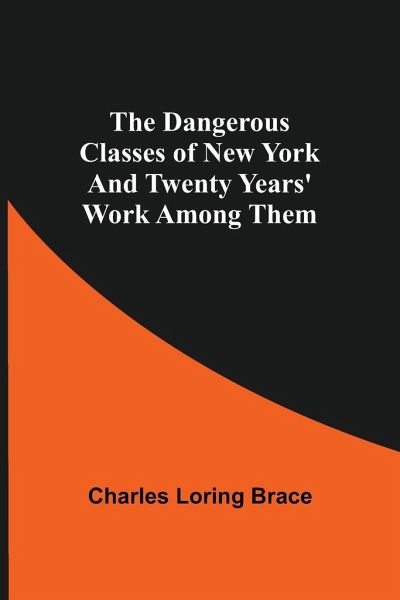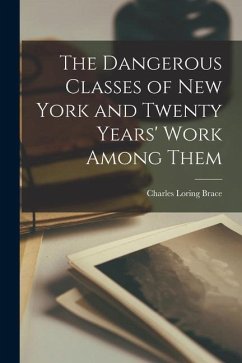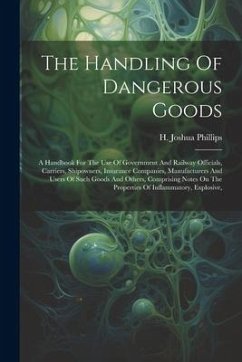
The Dangerous Classes Of New York And Twenty Years' Work Among Them
Versandkostenfrei!
Versandfertig in 1-2 Wochen
22,99 €
inkl. MwSt.
Weitere Ausgaben:

PAYBACK Punkte
11 °P sammeln!
A compelling doorway into a world where urban life, philanthropy, and policy collide. Brace's incisive study speaks with calm urgency about the men, women, and children who walked the crowded streets of nineteenth century New York, revealing how charity and reform confronted poverty with both imagination and restraint. This historical social reform tract and urban sociology treatise offers more than a chronicle of trials; it maps the ideas, organisations, and people that shaped early social work and city life. Woven through its pages are themes of poverty and charity, immigrant communities, an...
A compelling doorway into a world where urban life, philanthropy, and policy collide. Brace's incisive study speaks with calm urgency about the men, women, and children who walked the crowded streets of nineteenth century New York, revealing how charity and reform confronted poverty with both imagination and restraint. This historical social reform tract and urban sociology treatise offers more than a chronicle of trials; it maps the ideas, organisations, and people that shaped early social work and city life. Woven through its pages are themes of poverty and charity, immigrant communities, and the day-to-day realities of the New York City slums, studied with a reporter's clarity and a reformer's conscience. For researchers and students, for social work professionals, and for general readers drawn to nineteenth century new york and urban reform classics, it remains a vital window on how a city tried to mend itself. Out of print for decades, Alpha Editions brings it restored for today's and future generations. This is more than a reprint; it is a collector's item and a cultural treasure. The volume will appeal to casual readers curious about social history as well as to serious collectors seeking a refined, enduring edition of a landmark work on poverty, charity, and the dynamics of urban reform.












